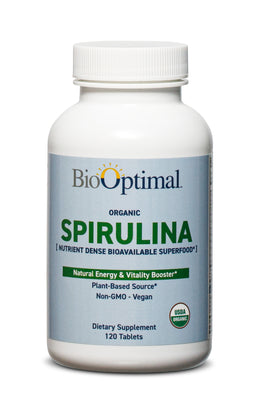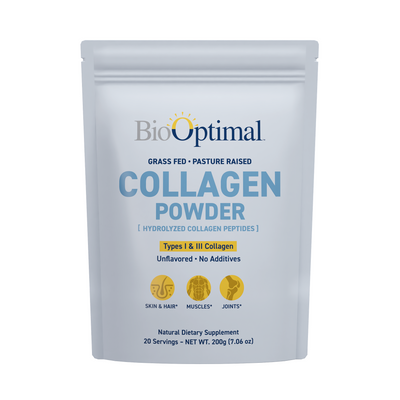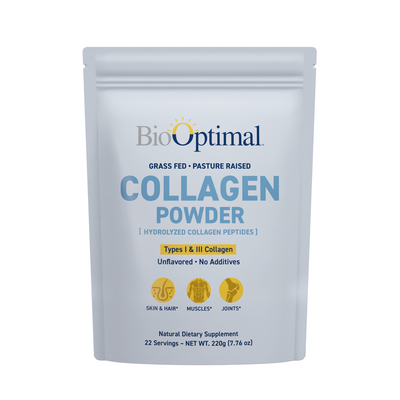Louis's takeaways:
While collagen is mainly known for supporting joints and skin, it also plays a subtle but essential role in brain function. Collagen contains amino acids that support neurotransmitter production, nervous system balance, and inflammation regulation, all impacting mental wellness.
Table of Contents:
Collagen is best known for supporting skin, joints, and hair, but many people are asking a new question: does collagen help mental health? As one of the most abundant proteins in the body, collagen plays a key role in physical wellness. Its popularity has skyrocketed, especially in supplement form, for those looking to maintain healthy aging, mobility, and appearance. However, recent interest has turned to how collagen affects brain health, mood, and mental clarity.
While collagen isn’t a direct treatment for mental health conditions, it contains amino acids—like glycine and proline—that support brain function and the nervous system. Some early studies and user reports suggest it may help with stress management, sleep quality, and overall mood. This growing area of research is sparking curiosity among health-conscious consumers. In this article, we’ll learn how collagen might support your mental well-being and what to consider when adding it to your routine.
What is Collagen?
Collagen helps to keep your body strong and resilient. While it’s often linked to joint and skin health, many people are exploring a new area of interest: collagen mental health. To know how collagen might affect your brain and mood, it's essential to first learn about what collagen is, how it functions in the body, and where it comes from. The following sections explain collagen’s structure and composition, why it’s essential for connective tissues, and how you can get it through food or supplements.
Collagen’s Composition and Function
Collagen comprises amino acids—mainly glycine, proline, and hydroxyproline—arranged in a unique triple helix structure. This firm, rope-like structure supports your skin, joints, bones, and ligaments. Collagen makes up nearly one-third of all the protein in your body. It acts like scaffolding that holds everything together, especially in connective tissues. The presence of glycine and mood regulation is exciting, as glycine plays a role in calming the nervous system. These biological functions are the foundation of emerging collagen mental health benefits research.
Sources of Collagen and Supplementation Options
You can support collagen levels through both diet and supplementation. Natural sources include bone broth, chicken skin, fish, and egg whites. However, collagen production decreases with age, so supplements have become popular. Collagen powders and capsules offer a convenient way to support overall health. Hydrolyzed collagen is more straightforward to absorb and mix into foods or drinks. Supplementing with collagen may promote healthy skin and joints, but it can also support collagen mental health by producing amino acids like glycine and proline. These amino acids contribute to neurotransmitter support and may improve sleep, stress response, and mood—adding to the list of collagen benefits.
Collagen and Mental Health: The Science Behind It
Many people are now asking: does collagen help with mental health? While collagen is mainly known for supporting joints and skin, it also plays a subtle but essential role in brain function. Collagen contains amino acids that support neurotransmitter production, nervous system balance, and inflammation regulation, all impacting mental wellness. Key compounds like glycine, proline, and arginine contribute to a calming effect, potentially aiding anxiety improvement and stress management. Though collagen isn't a treatment for mental illness, its amino acid profile supports processes linked to mood, sleep, and cognitive clarity. Here's how the science breaks down.
Role of Glycine in Mood Regulation
Glycine is abundant in collagen and has well-documented calming effects on the brain. Research shows glycine supports sleep quality, reduces body temperature before rest, and uplifts overall relaxation. These effects may indirectly improve mood and reduce stress, making a strong case for the link between glycine and mood. Glycine also influences neurotransmitters like serotonin, which plays a significant role in emotional balance. This connection helps explain the growing interest in anxiety improvement through collagen supplementation. While more studies are needed, glycine’s role in the nervous system is precise and promising.
Tryptophan, the Kynurenine Pathway, and Mood
Tryptophan is a precursor to serotonin—a key neurotransmitter in emotional regulation. However, tryptophan can also be diverted into the kynurenine pathway, especially during chronic stress or inflammation. Some experts suggest that collagen’s amino acid profile may influence this process. By increasing glycine and proline levels, collagen may help modulate inflammation and reduce the overactivation of the kynurenine pathway. This may improve tryptophan availability for serotonin production, benefiting those experiencing mood issues. The link between depression and collagen is still being researched, but this pathway shows a possible mechanism for how collagen could support emotional well-being.
Impact on Brain Health and Cognitive Function
Collagen plays a structural role in joints, skin, and brain tissue. It supports the extracellular matrix in the brain, which helps maintain neuronal communication and cellular signaling. These functions are essential for memory, attention, and mood regulation. Animal studies show that collagen may reduce inflammation in the brain and support neurogenesis. In addition, amino acids in collagen—significantly glycine—may help stabilize neurotransmitter levels, contributing to better focus and reduced mental fatigue. So, when asking if collagen helps with mental health, collagen contributes to a healthier brain environment, supporting emotional and cognitive well-being.
For a trusted source of high-quality collagen, check out the BioOptimal Supplements website. You can learn about products designed to support your whole-body health—inside and out.
Benefits of Collagen on Overall Health and Indirect Mental Health Improvements
While most conversations around collagen focus on skin and joints, its role in holistic health is far broader. Collagen supports multiple systems in the body, which can indirectly improve mental wellness. From skin appearance to digestive health and physical recovery, the wide-ranging benefits of collagen go beyond what meets the eye. Because physical and emotional health are closely connected, improving one often benefits the other. The following sections break down how collagen supports overall wellness and how that can influence confidence, motivation, and emotional balance.
Skin, Gut, Liver, and Cardiovascular Support
Collagen plays a structural role in many body systems, making up 25% to 35% of total body protein (WebMD). It’s essential for skin health, gut health, liver support, and cardiovascular health. Healthy skin is more than cosmetic—it’s tied to confidence and emotional well-being. Studies show that collagen supplements improve skin hydration and elasticity, which can lead to higher self-esteem (WebMD). In the gut, collagen helps support the intestinal lining, reducing inflammation and promoting balance—key for overall mental wellness. Its role in liver and heart health also adds to your body’s resilience and energy, contributing to a more positive outlook.
Anti-Ageing, Confidence, and Wellbeing
Visible signs like wrinkles and sagging skin often make you feel highly conscious. Collagen helps slow down these signs by improving skin elasticity and hydration. These supplement benefits don’t just impact appearance—they can improve confidence and overall well-being. Feeling good about your body often leads to better social interactions, increased motivation, and vigorous emotional health. By supporting how you look and feel, collagen offers a ripple effect that can positively influence your mental wellness in a natural, supportive way.
Improved Physical Activity and Recovery
Staying active plays help with managing stress and boosting mood. Collagen supports joint function, tendon strength, and muscle recovery—key elements for maintaining an active lifestyle. Whether walking, lifting weights, or doing yoga, collagen helps reduce joint pain and improve tissue repair. This allows you to stay consistent with exercise, which can uplift mood and minimize symptoms of anxiety and depression. Faster recovery also means less frustration and more motivation to keep moving—an often overlooked benefit in the conversation around collagen benefits and mental wellness.
Potential Risks and Considerations of Collagen Supplementation
While collagen offers many health benefits, it's essential to know that not all supplements are risk-free. As with any health product, taking collagen incorrectly or excessively may lead to unwanted effects. Understanding collagen risks and how it interacts with other systems in the body helps you make informed choices. The key is to focus on supplement safety, proper dosing, and choosing high-quality products as part of a balanced wellness routine.
Could Collagen Contribute to Anxiety or Depression?
Although collagen is generally safe, some wonder if it could negatively impact mood.
- One concern is that taking large amounts of specific amino acids—without proper nutrient balance—might influence the brain’s stress-response system, known as the HPA axis.
- Additionally, collagen lacks tryptophan, the amino acid needed for serotonin production. In rare cases, a deficient diet could affect mood.
- Some researchers also learn about the role of neurotoxic metabolites that can result from amino acid imbalances.
- However, there’s currently no strong evidence linking collagen directly to increased anxiety or depression. If you're using collagen for depression support, it’s best to ensure your overall diet supports serotonin production and mental balance.
Why is Balanced Diet and Quality Supplementation Important?
Collagen supplements are most effective when used as part of a healthy lifestyle—not a quick fix.
- To reduce collagen risks, it’s essential to maintain a balanced diet including amino acids, vitamins, and minerals.
- Pairing collagen with nutrient-rich foods ensures your body has what it needs to use those amino acids properly.
- Also, focus on supplement safety by choosing high-quality, third-party-tested products without unnecessary additives or fillers.
- A well-rounded approach that includes good sleep, regular activity, and nutrient-dense meals will help you get the most out of your collagen supplement safely and effectively.
Expert Opinions and Case Studies
Mental health challenges are widespread—1 in 8 people globally live with a mental disorder, and anxiety disorders affect 40 million adults in the U.S. alone. As interest in nutritional approaches grows, some experts explore collagen as part of holistic mental health strategies. Collagen is a protein found in abundance among mammals, making up 25–35% of total body protein, and it contains glycine, a calming amino acid. Research shows that glycine may help increase serotonin levels and improve mood, reinforcing the potential role of collagen in supporting mental wellness and emotional balance.
5 Reasons Doctors Are Considering Collagen for Mental Health
As interest in nutritional psychiatry grows, more health professionals explore collagen’s role in brain health. While research is still developing, early findings and case studies point to collagen as a supportive tool in mental health strategies. Below are five reasons some doctors look closely at collagen for depression and emotional well-being.
1. Supports Sleep and Stress Reduction
Glycine, a major amino acid in collagen, has calming effects on the nervous system. It helps lower core body temperature and promotes restful sleep—two key factors for emotional balance. Improved sleep is often associated with better mood and reduced anxiety.
2. May Boost Mood Through Neurotransmitter Support
Collagen doesn’t contain tryptophan but supplies glycine and proline, which support neurotransmitter function. Balanced amino acids can contribute to serotonin production indirectly, making collagen a possible addition to broader mental health strategies.
3. Potential Role in Alzheimer’s and Schizophrenia Protection
Emerging health research is investigating collagen’s role in brain structure and inflammation. Some studies suggest that collagen may help protect against neurodegeneration by supporting the brain’s extracellular matrix, which plays a role in cognitive function.
4. Helps with Gut-Brain Axis Support
Gut health has a direct link to mood and mental clarity. Collagen supports the gut lining, which may reduce inflammation and improve nutrient absorption. This gut-brain connection is gaining attention in treatments for anxiety and depression.
5. Non-Invasive, Nutritional Support for Depression
Doctors seeking natural, food-based approaches to mood support may recommend collagen for depression as part of a larger wellness plan. While not a standalone treatment, it’s seen as a low-risk, supportive option alongside other therapies.
Wrapping up
So, does collagen help with mental health? While collagen isn’t a cure or primary treatment for mood disorders, it can support overall mental wellness. Its amino acids—especially glycine—may help with sleep, stress management, and neurotransmitter balance. Collagen also supports gut, skin, and joint health, boosting confidence and emotional well-being.
Still, collagen should be considered part of a broader health strategy—not a stand-alone solution. A balanced diet, alongside exercise, quality sleep, and proper medical care remain essential.
FAQ
1. What does collagen do to your brain?
Collagen supports brain structure by maintaining the extracellular matrix, aiding in cellular signaling and angiogenesis. These functions help promote healthy brain tissue and communication between neurons.
2. Does collagen make you happier?
Collagen contains glycine, which may help boost serotonin levels in the brain. This can contribute to a calmer mood and improved emotional balance.
3. What are the psychological effects of collagen?
Improved skin health can improve self-esteem, positively affecting mood. Collagen’s amino acids also support neurotransmitter synthesis, which may benefit mental clarity and emotional health.
4. Can low collagen cause depression?
Low collagen may signal a lack of key amino acids like tryptophan, essential for serotonin production. This imbalance could potentially contribute to mood disorders and depressive symptoms.
5. Can collagen help with anxiety?
Collagen supplementation may support neurotransmitter balance and reduce oxidative stress. These effects could help ease anxiety symptoms and support emotional stability.
6. What happens to your body when you start taking collagen?
You may notice improved skin hydration, reduced joint discomfort, and faster tissue repair. These physical benefits often lead to greater comfort and overall wellness.











